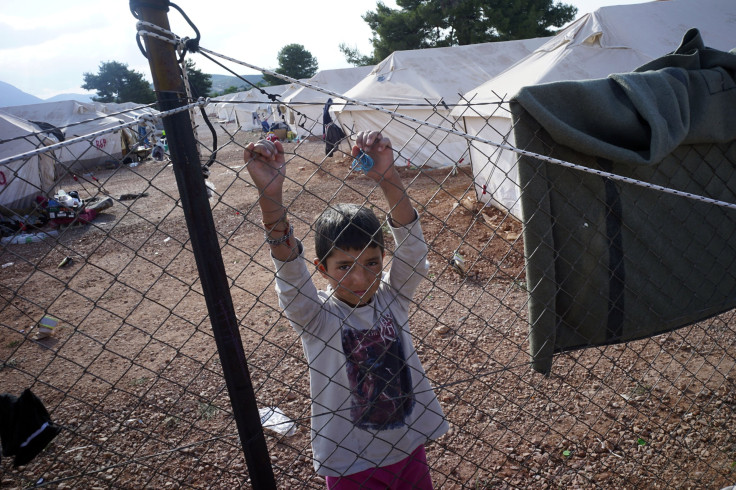Refugees Welcome Index: China Leads, Russia Ranks Lowest, Amnesty Survey Finds

When it comes to allowing refugees into their country, the people of China, Germany and the U.K. are the most welcoming, while Russians, Indonesians and Thais are the least, a first-of-its-kind survey of over 27,000 people across 27 countries released Thursday by the Amnesty International found.
The human rights group’s Refugees Welcome Index — based on a global survey carried out by the independent strategy consultancy GlobeScan — ranked nations on their citizens’ willingness to let refugees live in their countries, towns, neighborhoods and homes. It found that globally, 1 in 10 people are willing to let refugees stay in their homes, and 3 in 10 say they would allow them to stay in their neighborhood.
“The Refugees Welcome Index exposes the shameful way governments have played short term politics with the lives of people fleeing war and repression. Governments must heed these results, which clearly show the vast majority of people ready and willing to make refugees welcome in their country,” Amnesty International’s Secretary General Salil Shetty said in a statement. “Governments cannot allow their response to the refugee crisis to be held hostage by headlines. Too often they use xenophobic anti-refugee rhetoric to chase approval ratings. This survey suggests they are not listening to the silent majority of welcoming citizens who take the refugee crisis personally.”
In China, 94 percent of those surveyed said they would allow refugees shelter in their country, while 46 percent said they would shelter refugees in their homes. Russia lies at the other extreme, with only 33 percent saying they would allow refugees into their country and 99 percent stating they would deny refugees access to their homes.
"I would expect that the Chinese population is sending a message, you know, we would welcome them,” Shetty told the Agence France-Presse. “Now of course, this doesn't mean that China has taken many refugees so it's time for the government to do something about it.”
However, the survey also exposed a disconnect between people’s willingness to let refugees enter their country and their willingness to let them take shelter in their homes. In Spain, for instance, 97 percent of those surveyed said they would “personally accept people fleeing war or persecution” into the country, but this figure dropped to a mere 18 percent when they were asked if they would accept them into their homes.
After Chinese, the people in the U.K. were the most willing to take refugees into their own homes, with 29 percent saying they would do so.
The survey comes at a time when anti-refugee sentiment in many countries across Europe is brimming over. In Germany, which ranked second in the Refugees Welcome Index, anger against Chancellor Angela Merkel's open-doors policy has triggered the rise of far-right parties like Alternative für Deutschland.
Not only has the hot-button issue laid bare deep fissures between members of the 28-nation European Union — putting the bloc’s Schengen Agreement at risk — it has also pitted the EU against Turkey, which is currently sheltering over 3 million refugees.
“These figures speak for themselves. People are ready to make refugees welcome, but governments’ inhumane responses to the refugee crisis are badly out of touch with the views of their own citizens,” Shetty said in the statement. “Politicians should stop pandering to intolerance and division, and listen to their people who want to help their fellow human beings. They must address the shameful imbalance that sees 86 percent of the world’s refugees welcomed by the world’s poorer countries while the wealthy ones renege on their responsibilities.”
© Copyright IBTimes 2025. All rights reserved.






















